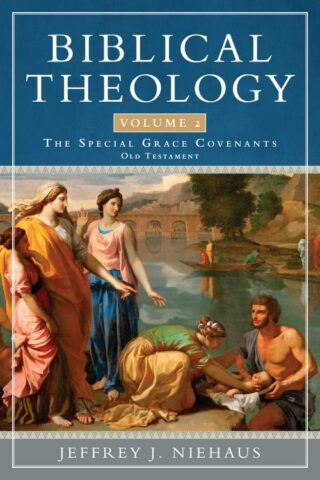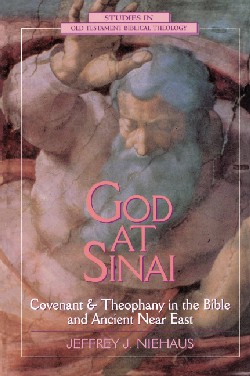Jeffrey Niehaus
Showing all 3 resultsSorted by latest
-
When Did Eve Sin
$19.99Did Eve sin before Adam?
When responding to the serpent’s temptation to eat the forbidden fruit, Eve says that one “must not touch it” (Gen 3:2-3). In this, Eve appears to embellish upon God’s clear command that one must not eat from the tree (Gen 2:17). Did Eve add to God’s command, becoming the first legalist? Was this an innocent mistake? Or is the answer altogether different?
Jeffrey J. Niehaus tackles this issue head-on in When Did Eve Sin? Though many commentators believe that Eve altered God’s command, there are notable exceptions in the history of interpretation that suggest another answer. Using Scripture to interpret Scripture and analyzing biblical stories where characters retell the facts, Neihaus recognizes a common scriptural pattern that resolves the mystery of Eve’s words.
Niehaus examines his view’s implications for biblical historiography, what it meant to eat from the tree of life, how a sinless being can fall into sin, and the nature of the mysterious serpent. Everyone engaging with these questions will be deftly guided by Niehaus’ thorough study of this thorny issue.
Add to cartin stock within 3-5 days of online purchase
-
Biblical Theology Volume 2
$34.99The second of three volumes, this study explores the Old Testament special grace covenants: the Abrahamic, Mosaic, and Davidic. The third volume examines the final and culminating special grace covenant: the New covenant. The three volumes taken together present the covenant as an expression of God’s nature, and show a paradigm of activity by which God works in covenantal relations, first to create the world and then, through a redemptive program after the fall, to redeem what was lost. The proposed paradigm, by which all the divine-human covenants are expressed and understood, is a new and, it is hoped, helpful way of portraying God’s covenant making dynamic, and it also thereby illustrates the divine consistency. The work also develops further the idea that all divine-human covenants are both unconditional and conditional, in contradistinction to prevailing terminology and understanding of the covenants as either conditional or unconditional, or unilateral or bilateral. Ancillary to the discussion of the covenants is a fresh exploration and demonstration of covenant making and covenant sustaining terminology.
Add to cartin stock within 3-5 days of online purchase
-
God At Sinai
$28.55The basis of all biblical study is that God has revealed himself, not only through the Word, but in various ways in various times and places. These self-disclosures are called theophanies. The pivotal theophany in Old Testament times was God’s revelation to Moses on Mount Sinai. So significant is this theophany in terms of God’s covenant with his people and his progressive revelation that author Jeffrey J. Neihaus justifiably employs the term “Sinai theology” to convey his theme. This book explores the meaning of this theophany throughout the Old Testament — pre-Sinai, post-Sinai (especially the prophets), and the Psalms — and its significance for the New Testament. It also examines parallels in ancient Near Eastern traditions.
Add to cartin stock within 3-5 days of online purchase













